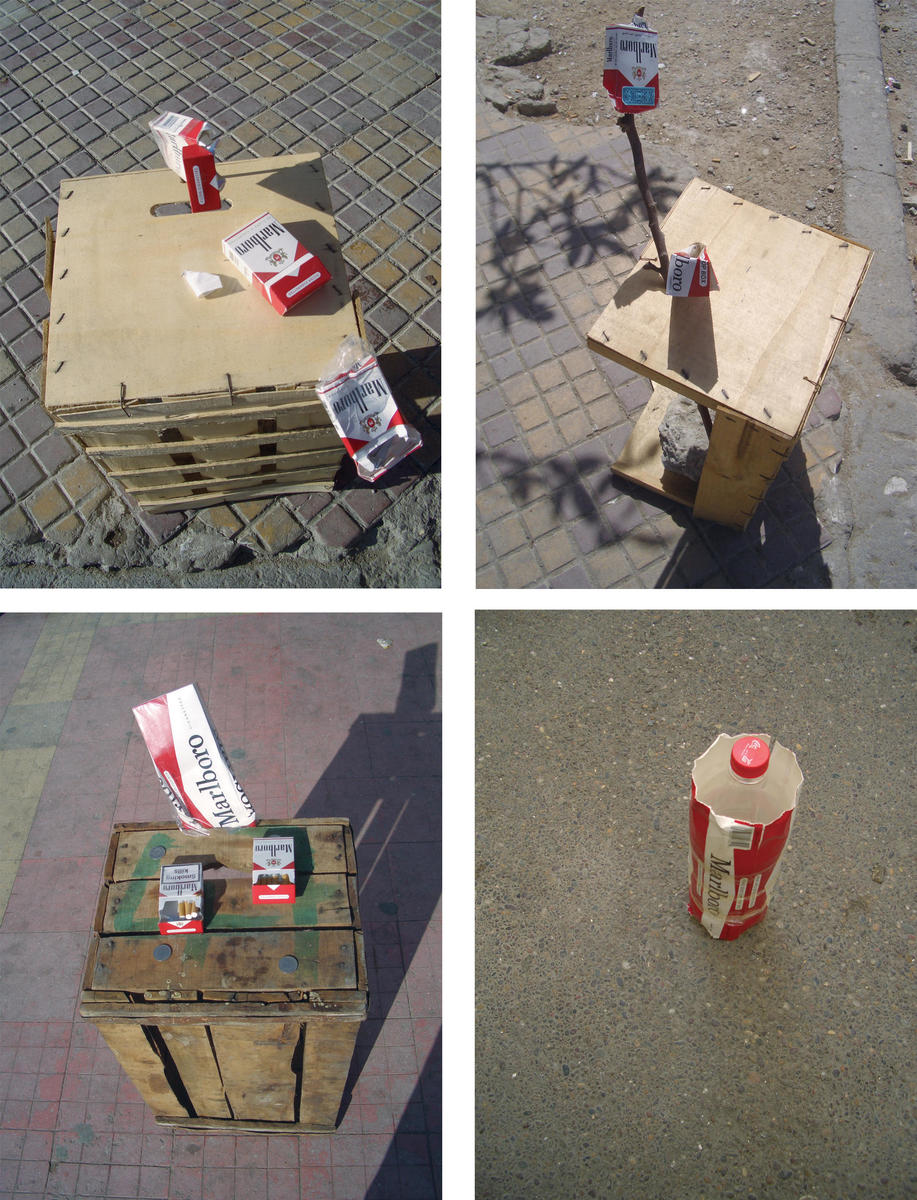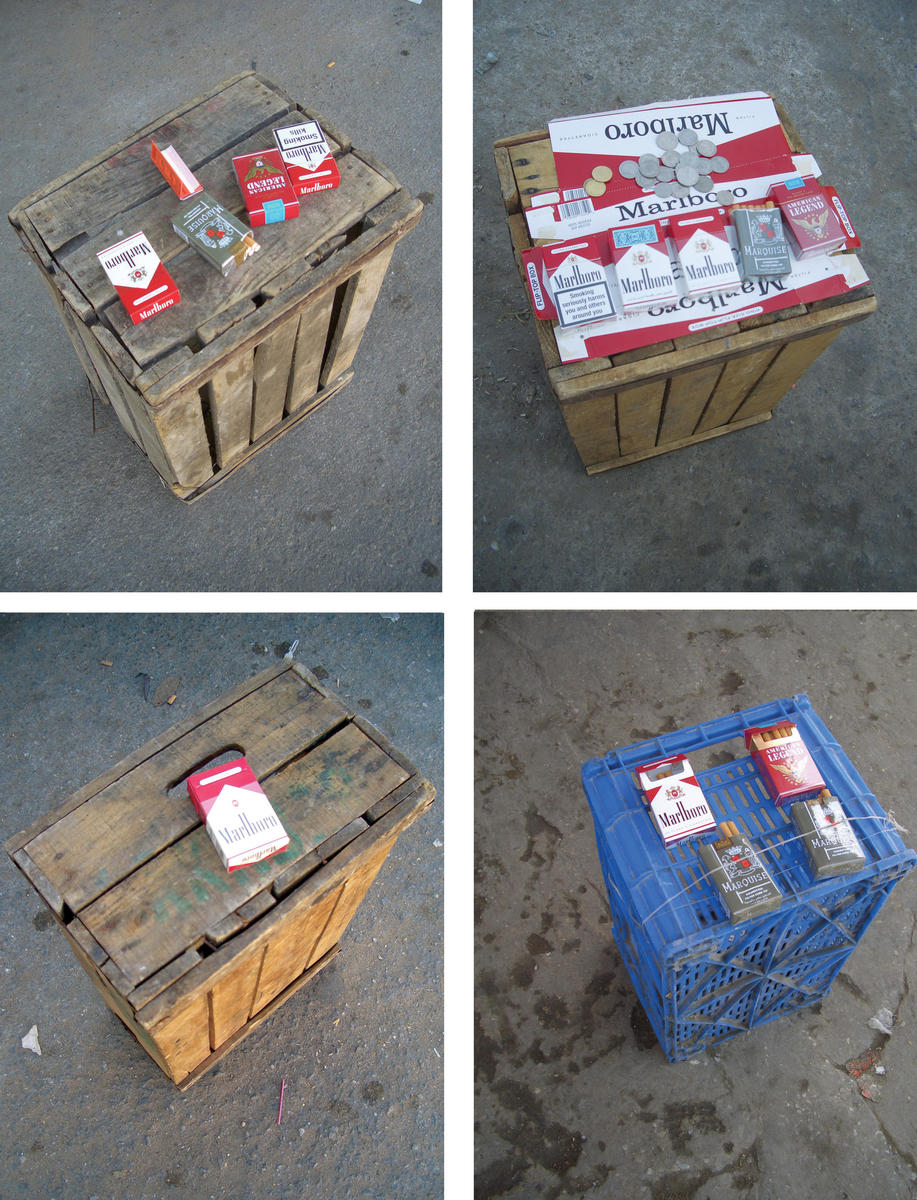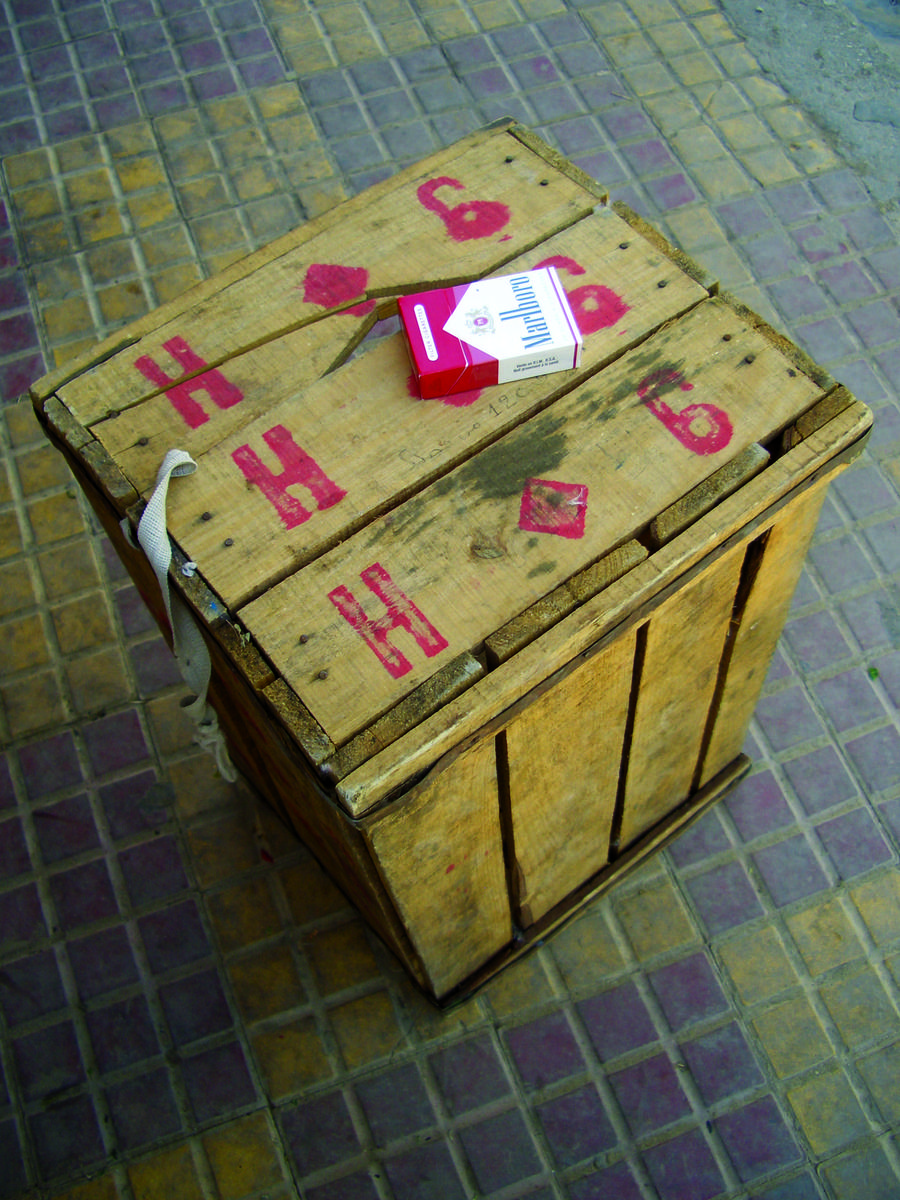The Inhale and Exhale of Economics
1 Euro = 1.20 US Dollars = 10 Dirhams
Ten by two neatly packed tobacco,
five packs by two rows, or 200 loosies,
display one pack, two packs, three,
try your luck, display four.
Five by three by three wood boards —
an empty orange crate standing tall,
a man leaning against a wall
a monument to Marlboro
Exhale
From the port duty-free
one carton of Marlboros or Camels is 180 dirhams;
from the store with tax
one pack of Marlboros or Camels is thirty-two dirhams
Bribing the police is fifty dirhams per week
Inhale
Just outside the port on a street corner
A sells one pack at twenty-two dirhams
or looses, one by one, at one dirham per cigarette.
A sells ten packs a day (+ rolling paper + hashish)
Average profit per six day week = 190 dirhams
Inhale
At a cafe ten minutes away B sells
one contraband cigarette at one dirham
two store-bought cigarettes at three dirhams
a three cigarette combination with Marquise at two dirhams
B sells an average of 200 cigarettes per day
Exhale
Expenses at the cafe B works out of eight hours a day:
Bread at two dirhams a day
Bread with cheese at four dirhams a day
Tea at five dirhams, cafe au lait at seven dirhams
B’s average profit = thirty to sixty dirhams per week
Exhale
A has been in prison twenty-one times
Fine to avoid prison is 10,000 dirhams

There is a demand for loosies because most people do not have enough money to buy a pack all at once. The vendors call it la vente au detail (individual sale); each cigarette is a detail in the grand scheme, and the marketplace is one of the individuals. Contraband sellers exist because it’s logical in a slow economy; anything that can be broken down and resold will be. This is the eddy in which the big market economies break off from the current and money circulates gently among the people.
Contraband represents twenty-five percent of cigarette sales. The reported estimated loss to the Moroccan government in tax revenue is 2-4.5 billion dirhams per year.

Who says no one knows where merchandise comes from anymore?
Do you want blue cigarettes or not blue? Camels brought through the Sahara on camelback? Or on a boat from Gibraltar, Spain, or maybe you prefer France?
“Blue cigarettes” comes from the labels that were once used to decorate foreign cigarettes. Now you can tell them by the health-risk labels. Morocco is currently negotiating its own warning labels for cigarettes and new regulations on where cigarettes can be advertised. It’s a good thing Tangerines are multilingual, for in the meantime, they can read the health warnings of the cigarettes they buy here in Tangier.
Marlboro sold here since 1948
A skinny man sits ten feet away, a man in a leisure suit sits proudly behind his box, a man hides around a doorway, and another man seems to loiter among the loiterers. A twelve-year-old watches the stand for his father. A forty-year-old woman watches a stand for her son. Of the most reliable is a thirty-year-old Berber woman with one brown eye and one blue eye who is in the same spot everyday. A large mound of a woman can be found unflinching on her chair even when the police are near.

In Tangier, a port city in the north of Morocco, there exists a ubiquitous underground economy of cigarette sellers. This unspoken economy is a slight of hand trick, both by way of its magic — disappearing into thin air if you look too closely — and its physical presentation and marketing. One minute the Marlboro box is there, seemingly unguarded, open and begging “take one.” If you make a move closer, a man you didn’t see before saunters out of the shadows. Another time you may see red out of the corner of your eye, and like a bull, you are aroused. You look back: The box is gone and in its place, a policeman. Only the crate remains, standing tall — a monument to ethereal merchandise.